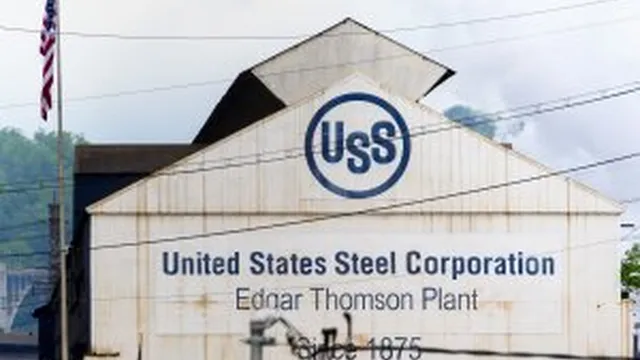
Nippon Steel completes $15 billion acquisition of U.S. Steel
2025-06-19 11:22- Nippon Steel reached an agreement to acquire U.S. Steel for approximately $15 billion, marking a significant milestone in the steel industry.
- This acquisition faced hurdles related to national security concerns but was ultimately approved under specific conditions set by the U.S. government.
- The deal is expected to enhance both companies’ manufacturing capabilities and solidify Nippon Steel's position in the U.S. market.
Express your sentiment!
Insights
On June 18, 2025, Japan's Nippon Steel successfully completed its acquisition of U.S. Steel, a significant move in the steel industry. This deal, valued at around $15 billion, marked the culmination of a long negotiation process that began over a year and a half earlier. Nippon Steel's purchase of U.S. Steel, which will now operate under the name Nippon Steel North America, reflects evolving dynamics in the global steel market. The acquisition was initially met with resistance from U.S. officials due to national security concerns, particularly about foreign ownership of a major American steel producer. The negotiations were complicated by political factors, including prior positions taken by both President Joe Biden and former President Donald Trump. After Biden blocked the deal in January 2025, Trump signaled a willingness to approve it once he took office. This resulted in the establishment of a national security agreement between the companies, incorporating measures to safeguard American interests within the transaction. Under the terms of the new pact, which includes significant capital investments in U.S. Steel's operations, Nippon Steel committed to investing $11 billion by 2028 in the U.S. market, with an immediate pledge of $1 billion for future projects. Additionally, the deal grants the U.S. government specific oversight capabilities, including the power to appoint an independent director to U.S. Steel's board. This arrangement aims to address concerns about potential job losses and maintain production capacity within the United States. As U.S. Steel transitioned to becoming a wholly owned subsidiary, it ended trading under its historic name on the New York Stock Exchange. This change embodies a shift in U.S. industrial ownership, as Nippon Steel takes a pivotal role in reinvigorating the American steel sector with its advanced technology and manufacturing capacity. The broader implications of this transaction will unfold as both companies work together to adapt to the evolving global steel market landscape, potentially establishing new benchmarks in efficiency and production standards.
Contexts
The acquisition of Nippon Steel, one of the largest steel manufacturers globally, is poised to significantly impact the American steel industry. In the context of increasing globalization, this acquisition can be seen as an essential strategic move by Nippon Steel to expand its market presence and access to the North American market. The U.S. has long been a critical consumer of steel, and Nippon's entry could intensify competition among domestic producers, pushing them to innovate and improve their production techniques to remain viable. This competitive pressure could lead to a more efficient steel production environment, benefiting consumers through potentially lower prices and improved product quality. Additionally, the acquisition may lead to a reshaping of labor dynamics within the American steel industry. Job security within domestic steel firms could come under threat as Nippon Steel aims to consolidate operations and rationalize productivity. This could result in job losses in some areas, while possibly creating opportunities in others, particularly where innovative technologies and production methods are adopted. Moreover, the industry could witness a shift in labor practices and wage structures, as Nippon may bring in its own operational standards and workforce policies that differ from those traditionally practiced in the U.S. steel sector. Furthermore, the environmental impact of steel production has become a critical concern worldwide, and Nippon Steel's approach to sustainability will be closely examined in the American context. If Nippon integrates greener practices and technology within its U.S. operations, it could not only improve its market share but also set a new standard for environmental responsibility in the American steel sector. This would be particularly relevant given the increasing regulatory scrutiny on carbon emissions and environmental standards imposed on steel manufacturers in the U.S. The adoption of cleaner technologies could drive competitors to follow suit, fostering a more sustainable steel industry overall. In summary, Nippon Steel's acquisition is likely to generate considerable changes within the American steel industry, encompassing competitive dynamics, labor relations, and environmental practices. While challenges such as job displacement and adapting to new corporate cultures may arise, there is also potential for enhanced innovation, operational efficiency, and improved environmental standards. This transformative phase could ultimately define the future of steel manufacturing in the U.S., establishing a more competitive, sustainable, and technologically advanced industry.